Shocking image of Syrian boy hovers over MSPs at Holyrood
- Published
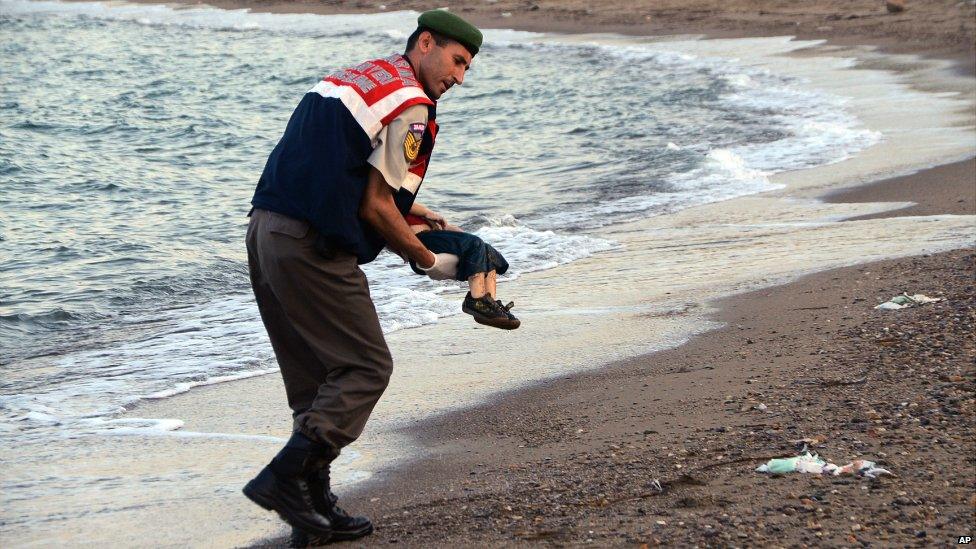
The boy's lifeless body was captured in a series of images released by a Turkish news agency
Some see them as a thorny problem. Some see them as a humanitarian challenge. Some call them migrants. Some call them refugees. His family called him Aylan. Aylan Kurdi.
The image of this three-year-old Syrian boy, lying prone, lying dead, on a beach in Turkey has stimulated demands for political action like nothing else.
And today the tiny figure - clothed in red T-shirt, blue jeans and trainers - hovered unseen over the Holyrood chamber. Unseen but not ignored.
The First Minister, Nicola Sturgeon, said she had been "reduced to tears" by the images despatched from the Turkish shoreline. Others voiced comparable compassion.
Labour's Patricia Ferguson, her voice palpably choking, described those fleeing their homes as "the most desperate people on the planet".
The topic had first been raised by her leader, Kezia Dugdale, who pledged Labour's support for any contribution which Scotland might be able to make.
Willie Rennie of the Liberal Democrats was similarly supportive. Ditto Ruth Davidson of the Conservatives who later called upon the prime minister to do more - while stressing the avenues already being pursued by the UK government.
Nicola Sturgeon: "We cannot walk by on the other side or that little boy we were all touched by will just become many, many more."
An emotional session, then. Two emotions primarily to the fore. Sympathy, certainly. But also anger. Vocal exasperation at what Ms Sturgeon said was a "walk on by" attitude displayed by UK Ministers.
The FM has convened a summit meeting for tomorrow, bringing together political and civic Scotland. I would expect the summit to pursue two broad areas: firstly, ideas for tackling the crisis, ideas which might be pursued by others; and, secondly, a declaration that Scotland stands ready to play her part if there is collective action involving the UK and the wider EU.
All of which adds to the challenge already confronting David Cameron and other EU leaders. Mr Cameron knows the image of Aylan Kurdi demands a response; a compassionate response.
But, equally, he will not want to create precedents which would undermine Britain's wider and long-standing policies on immigration or EU-agreed rules on asylum. He insists that his government has been in the forefront of urging action, including efforts to pre-empt the problem by lessening tension in Syria and elsewhere.
Those advocating a response driven by empathy tend to say, entirely understandably, that this must not be about numbers. It should be about human compassion.
But a head of government, defending border integrity, has to consider numbers, has to offer guidance on whom to admit and why, together with whom to exclude and why.
Mr Cameron's critics say they understand that. They accept that Britain cannot simply admit any and every one who wants to come here.
But they say that does not mean that Britain should neglect its duties of care to those in evident human need. They say that would be to Britain's shame. And at Holyrood today they said it in the name of Aylan.
- Published3 September 2015
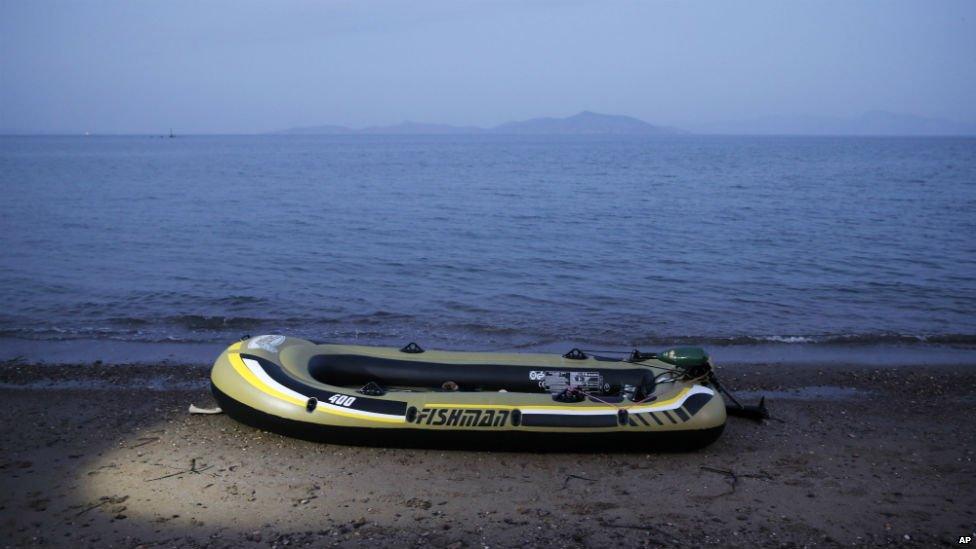
- Published3 September 2015
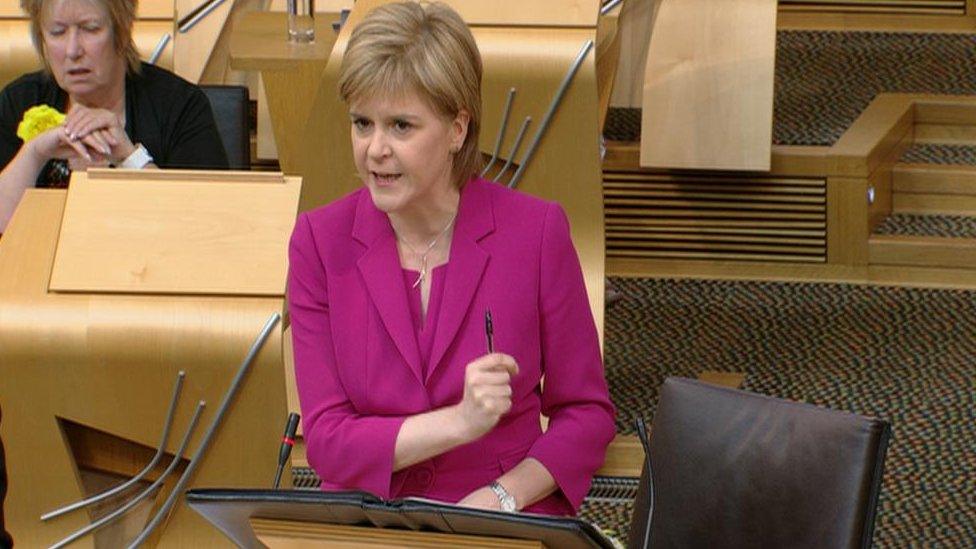
- Published3 September 2015
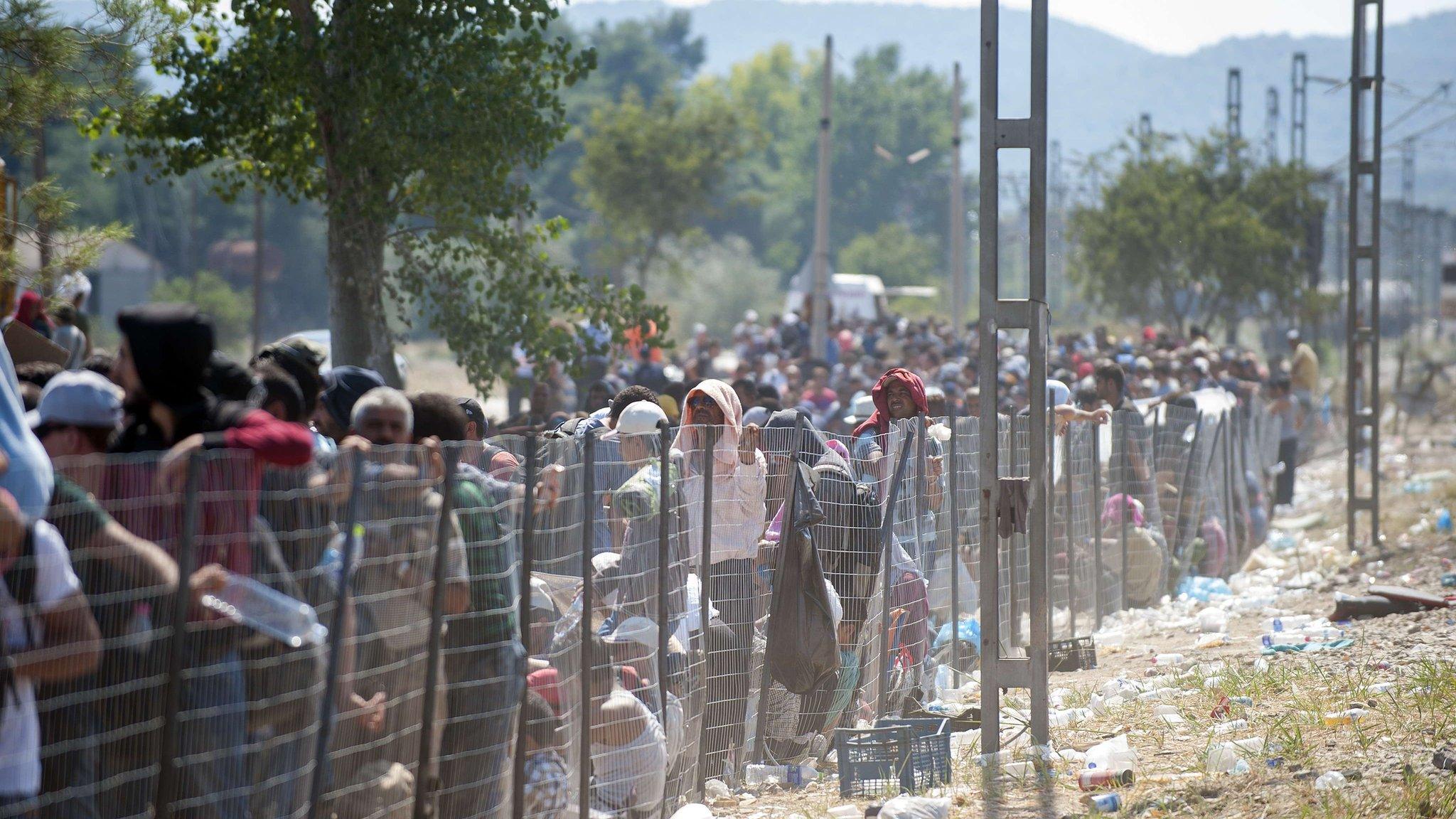
- Published3 September 2015
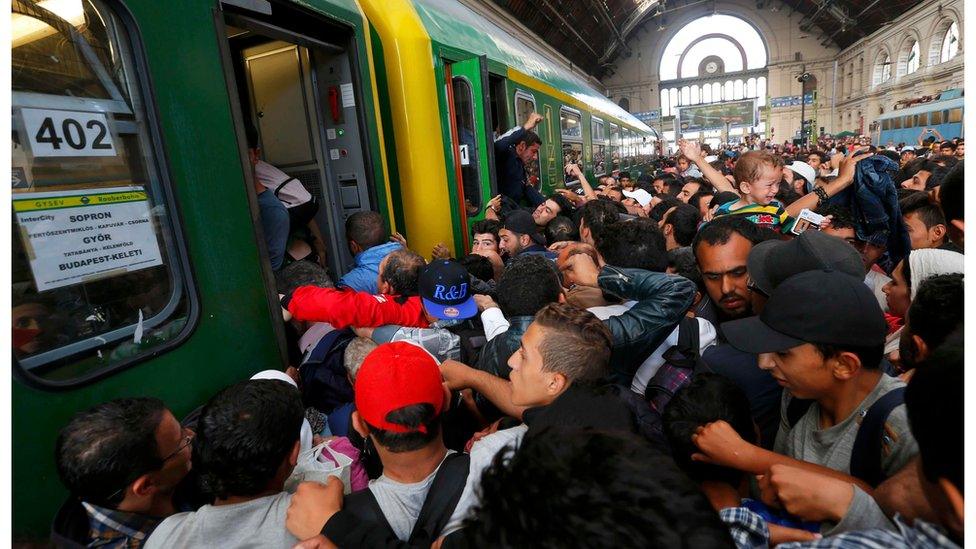
- Published2 September 2015